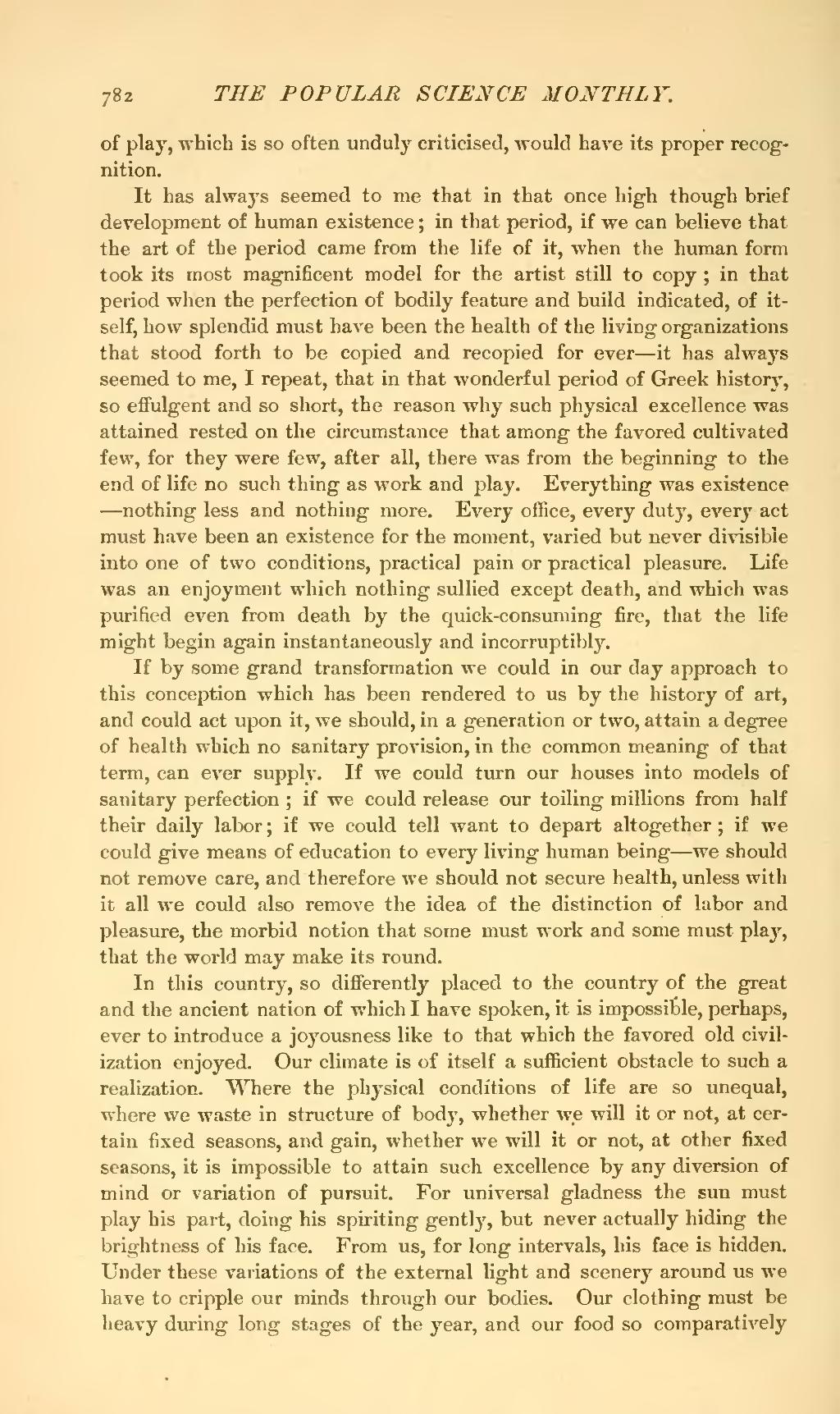of play, which is so often unduly criticised, would have its proper recognition.
It has always seemed to me that in that once high though brief development of human existence; in that period, if we can believe that the art of the period came from the life of it, when the human form took its most magnificent model for the artist still to copy; in that period when the perfection of bodily feature and build indicated, of itself, how splendid must have been the health of the living organizations that stood forth to be copied and recopied for ever—it has always seemed to me, I repeat, that in that wonderful period of Greek history, so effulgent and so short, the reason why such physical excellence was attained rested on the circumstance that among the favored cultivated few, for they were few, after all, there was from the beginning to the end of life no such thing as work and play. Everything was existence—nothing less and nothing more. Every office, every duty, every act must have been an existence for the moment, varied but never divisible into one of two conditions, practical pain or practical pleasure. Life was an enjoyment which nothing sullied except death, and which was purified even from death by the quick-consuming fire, that the life might begin again instantaneously and incorruptibly.
If by some grand transformation we could in our day approach to this conception which has been rendered to us by the history of art, and could act upon it, we should, in a generation or two, attain a degree of health which no sanitary provision, in the common meaning of that term, can ever supply. If we could turn our houses into models of sanitary perfection; if we could release our toiling millions from half their daily labor; if we could tell want to depart altogether; if we could give means of education to every living human being—we should not remove care, and therefore we should not secure health, unless with it all we could also remove the idea of the distinction of labor and pleasure, the morbid notion that some must work and some must play, that the world may make its round.
In this country, so differently placed to the country of the great and the ancient nation of which I have spoken, it is impossible, perhaps, ever to introduce a joyousness like to that which the favored old civilization enjoyed. Our climate is of itself a sufficient obstacle to such a realization. Where the physical conditions of life are so unequal, where we waste in structure of body, whether we will it or not, at certain fixed seasons, and gain, whether we will it or not, at other fixed seasons, it is impossible to attain such excellence by any diversion of mind or variation of pursuit. For universal gladness the sun must play his part, doing his spiriting gently, but never actually hiding the brightness of his face. From us, for long intervals, his face is hidden. Under these variations of the external light and scenery around us we have to cripple our minds through our bodies. Our clothing must be heavy during long stages of the year, and our food so comparatively

